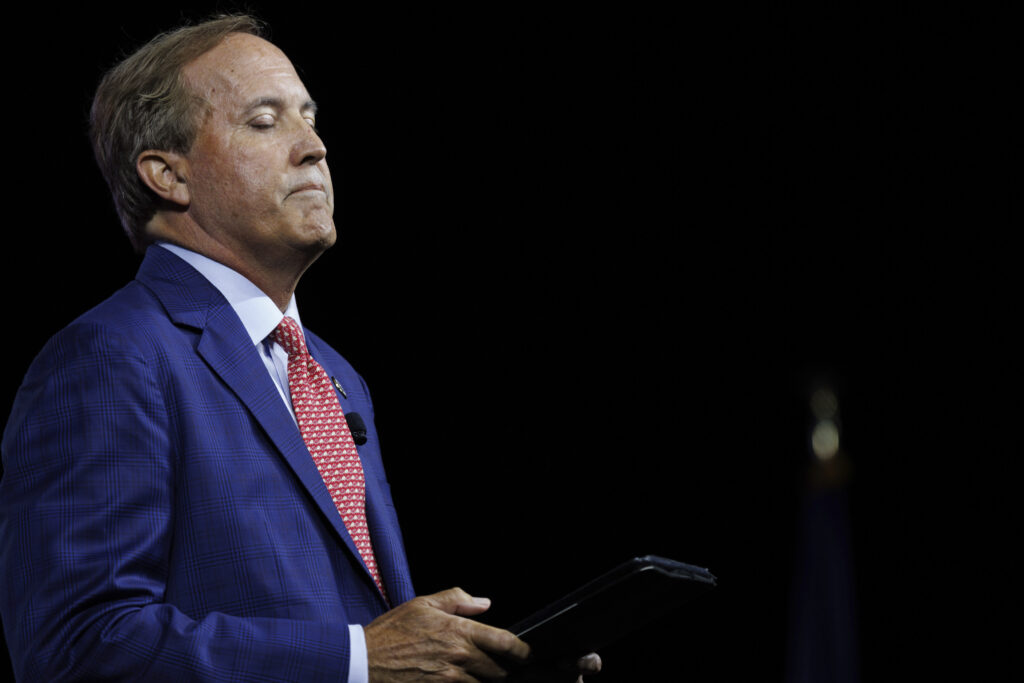Illinois Judge Rules Against Arresting Quorum-Breaking Texas Lawmakers

An Illinois judge Wednesday rejected Texas Attorney General Ken Paxton (R)’s demand to enforce arrest warrants against Democrats who left Texas to block a Republican redistricting plan that could help the GOP keep control of the U.S. House in 2026.
Texas Democrats have brought the legislature to a halt since Aug. 3, with many of them staying in ally states like Illinois to prevent Republicans from having enough members present to take a vote on their proposed congressional map. Texas House leadership issued civil arrest warrants to compel their attendance, but state officials have been unable to enforce the warrants while Democrats are under the protection of blue state governors.
Paxton last week filed a petition in Adams County, Illinois invoking the U.S. Constitution’s Full Faith and Credit Clause, arguing the state must help return Democrats to Texas. Under the clause, states can refuse enforcement if it violates their own laws or public policy.
“In these rare and critically important emergency circumstances, Texas is entitled to relief via any order or orders necessary to effectuate the Quorum Warrants in Illinois and return Respondents to Texas,” Paxton argued in his filing.
Paxton asked the court to initiate contempt proceedings against Democrats and set a hearing in the case.
Illinois Judge Scott Larson determined the court did not have the power to initiate contempt proceedings against Texas Democrats, saying Paxton’s emergency motion and petition “do not cite any authority to allow this court to obtain subject matter jurisdiction to initiate the requested contempt proceedings.”
Larson also found Paxton’s citation of the Full Faith and Credit Clause to be “insufficient” to demonstrate how the court has jurisdiction over “such a unique cause of action.”
Paxton filed a similar complaint in California, as well. In both California and Illinois, Paxton strategically filed in small counties that voted for President Donald Trump in 2024, where courts could be more conservative than other areas in the two blue states.